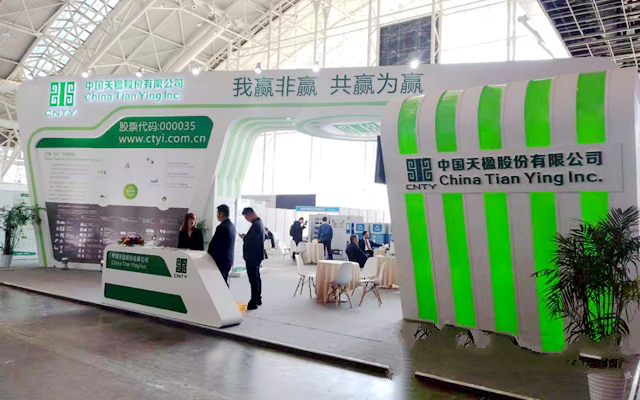At the International Exhibition of Urban Services and Clean Technology and Equipment 2018 held in Nanjing on November 2nd, CNTY presented its multiple products, technologies and solutions. Mr. Ji Rong, CNTY’s Vice President, elaborated on questions from China's Environmental Network in an exclusive interview.
The exhibition has brought together the latest products, cutting-edge technologies, the most advanced equipment, and the most comprehensive operation modes around the world to showcase the development of the industry. CNTY’s main businesses include the investment, construction, operation and maintenance of municipal environmental infrastructure projects, as well as the research and development, production and sales of environmental protection equipment. Its business scope covers waste incineration power generation, sludge treatment, kitchen waste treatment, hazardous waste treatment, construction waste treatment, sewage treatment, landfill gas development and utilization, waste sorting and transfer system investment and operation, and so on. CNTY has become a new service-oriented enterprise that builds ecological cities, optimizes urban environment, and increases employment. On November 1, 2018, CNTY successfully acquired the international environmental giant Urbaser. Headquartered in Madrid, Spain, Urbaser operates in more than 30 countries and regions including the UK, France, Italy, South America and North America. It has more than 300 solid waste treatment facilities worldwide, with a daily waste treatment capacity of 50,000 tonnes. Through the successful integration with Urbaser, CNTY has risen to the world’s top four in this industry, with 51,692 employees including 30,611 from Europe.
As a pioneering innovation in China, the fly ash plasma melting technology has attracted high attention. According to Mr. Ji, as of the end of 2017, there were 303 domestic waste-to-energy plants in China that generated a total of 6 million tonnes of fly ash per year if converted by waste-to-energy power generation. Currently, the fly ash is mainly disposed using cement + chelating agent, which has two major disadvantages: first, land resources are scarce; second, the chelating solidification of fly ash will encounter leakage and pollution after certain years. The plasma melting technology changes the molecular structure of toxic and harmful dioxins and heavy metals, to name a few, through ultra-high temperature treatment, so that complete harmless treatment and resource recovery are realized.
Looking ahead, Mr. Ji said that while deploying the domestic market, CNTY would continue to expand overseas markets and take an internationalization strategy, so as to realize substantial leaps in technology, facility and capacity through overseas mergers and acquisitions and project investment in countries along the “Belt and Road”.




